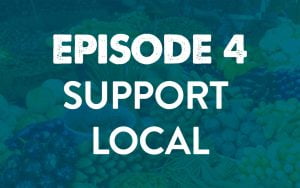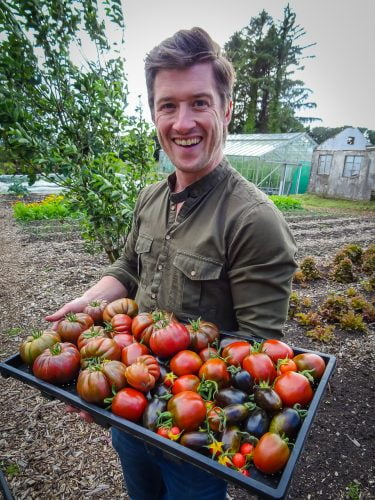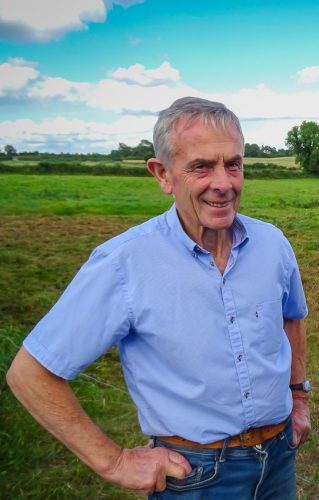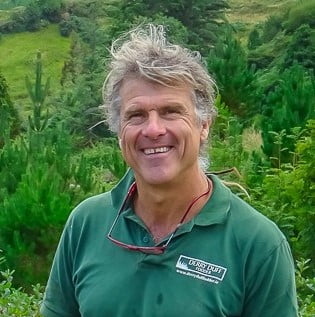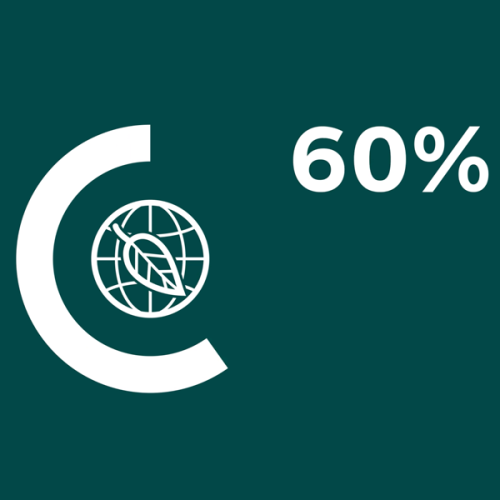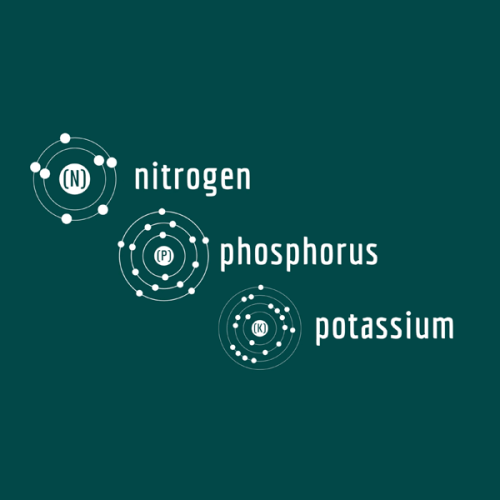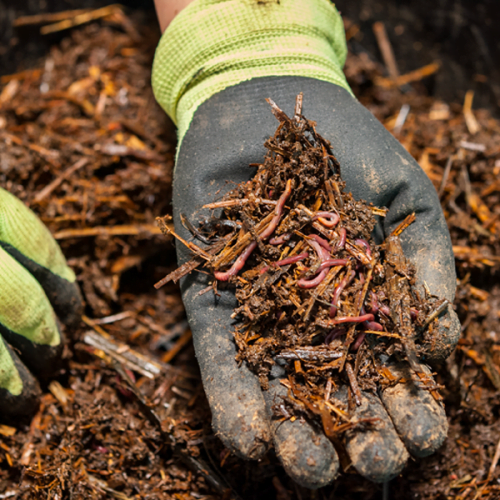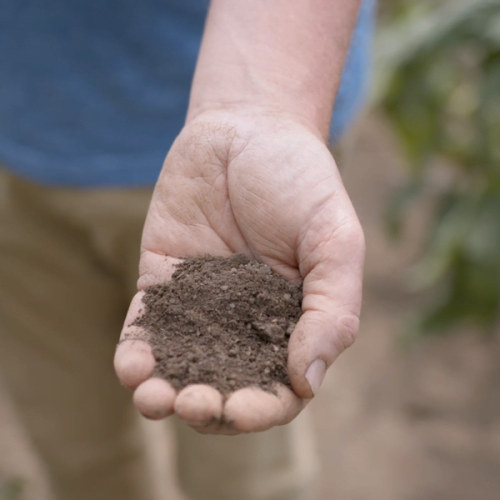In this episode of Food Matters
To kick off the series episode one is called “LOVE SOIL” – it not only plays a vital role in the growing process but despite SOIL being one of the most valuable natural resources, it’s the least understood. It’s taken for granted…… it’s one of the Earth’s most valuable natural resources, yet 30% of the worlds soils are degraded and 95% of our food is directly or indirectly produced in our soils so now more than ever, its vitally important we safeguard our soil. Intensive farming is destroying our soils by damaging soil fertility and the ecosystems they provide. So in this episode we dig deeper and find out what we can and what we should be doing to protect it.
Mick Kelly heads to West Cork to visit Dr. Steve Collins who is farming on the side of a mountain and managing to grow a superfood, Aronia berries in bad soil. Then Mick heads to Kildare to speak to a farmer who has started to think a bit differently when it comes to his soil before stopping off in Kilbeggan to see how nutrient enhancing of soil on an organic oat farm is proving very healthy before finishing in Cork and looking at a potential future solution to urban growing in a surprisingly different garden where the soil has been brought up onto a rooftop garden.
Stories:
- “Our Soil Problem” – Dr. Steve Collins, Derryduff, West Cork
- “Thinking a different way” – Farmer, Colm Flynn, Kildare
- “The Inside track on Soil Nutrition” – Ecologist, Anja Murray, Dublin
- “Nutrition in the Soil” – Farmers, Pat & John Lalor, Kilbeggan Oats, West Meath
- “The Future” – Brian McCarthy, Cork Rooftop Farm, Cork City

Introduction
Everything you need to know about food you can learn by growing something yourself. All growers know that food growing starts with soil. The empty beds in front of us might look bare, but they are full of the most essential parts of the food growing journey. Soil gives life to our food, but if cared for properly, can sustain us in many more ways. Full of micronutrients, good soil delivers healthier, tastier food. Full of organic matter, good soil has the potential to take carbon out of the atmosphere and store it underground. One of the most crucial resources for planetary and human health is waiting in your back garden right now, ready to get to work.
What does a hotter planet look like? One image we are already familiar with and will only see more of is the scorched earth – the outermost layer of the planet baked and cracked, no longer supporting life (Check out Dr Steve Collins talking in this episode about how loss of soil started the 1980s famines in Africa). The atmosphere and weather systems might feel out of our control, but the ground beneath our feet brings it all back to reality. It’s also clamouring for our attention, because if we recognise soil’s potential as a carbon sink, it can play a major role in putting the brakes on the climate emergency.

Why is Soil Important?
Healthy soils are the basis for more than 90% of worldwide food production. So, to achieve food security and combat climate change we need to protect this precious natural resource.
Soils are vitally important for counteracting climate change. Along with our forests and oceans, soil is one of nature’s great carbon sinks that naturally removes greenhouse gases, especially carbon dioxide, from the atmosphere. Fertile soils store more than 4000 billion tonnes of carbon – that’s over ten times more carbon than trees. Data from the Global Carbon Project state that 24% of greenhouse gas emissions are soaked up by our land sinks, with a further 17% soaked up by coastal and ocean sinks. Soil is also home to a wealth of wonderful biodiversity. One handful of healthy soil contains more micro-organisms than there are people living on earth.

Did You Know?
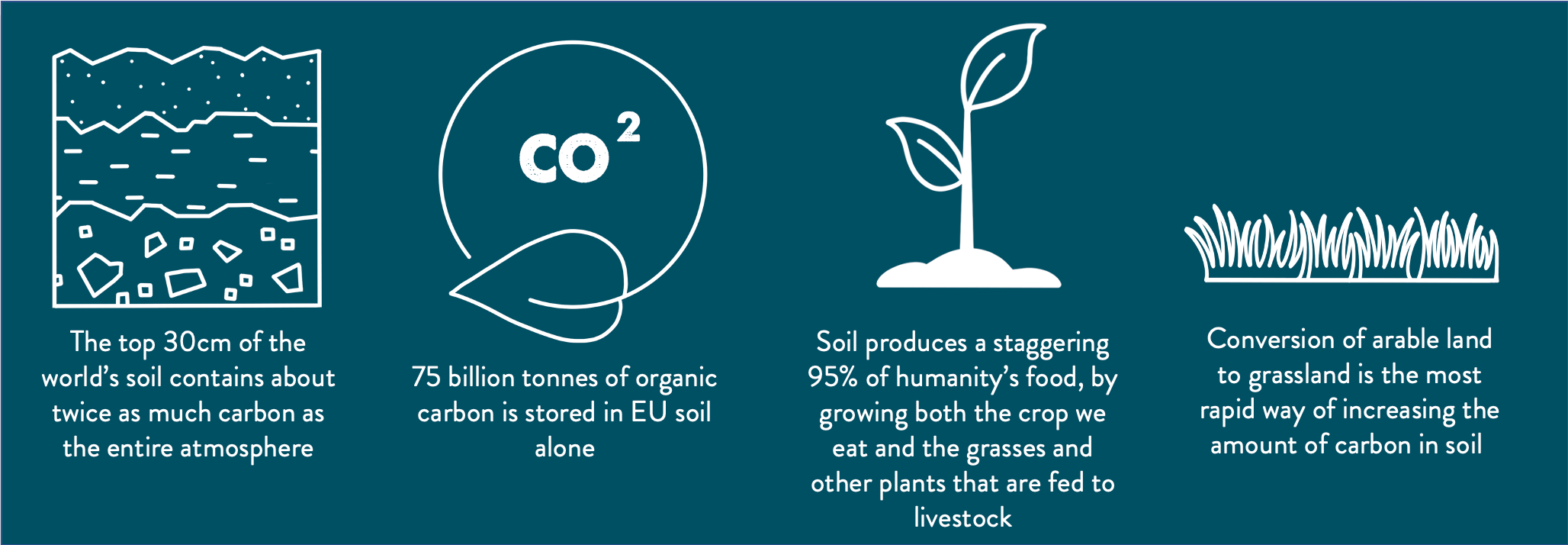
The Problem
Our planet’s soil health is severely threatened by many factors, including intensive farming that damages the fertility of soils and the ecosystems they provide.
- On a global scale, around 10-20% of drylands and 24% of the world’s productive lands are degraded, directly impacting the health and livelihoods of an estimated 1.5 billion people.
- Each year, an estimated 24 billion tonnes of fertile soil are lost due to erosion.
- The European Union is losing 970 million tonnes of soil per year due to water erosion – enough to cover an area twice the size of Belgium with one centimetre of soil.
To protect our soils, we must adopt better agricultural practices, such as cover cropping, minimal or no tillage, and contour cultivation. This way we can extend the lifespan of the soils that we all depend on.
Healthy soil can happen naturally, or it can require a lot of effort and planning to rework degraded land into fertile ground. But if we work to re-generate our soil we get a Healthy soil that is full of life — and not just in terms of producing plants but it can also sustain the life of humans by providing food grown in it that are full of nutrients and health benefits.
Soil, Climate Change and Biodiversity
The natural world is bio-diverse, meaning it contains a wide variety of living things. However, the biodiversity of life on earth is being severely challenged by many human activities, including the growing of a single species in one area, known as a monoculture.
Sadly, a lot of farming, both globally and nationally, is under monoculture, such as vast fields of soybeans or acres of wheat crop. In other words, it is nature managed by human beings.
The degradation of ecosystems and loss of thousands of species is a biodiversity emergency. In fact, it’s led many scientists to conclude that we are in the midst of the sixth great mass extinction.
The massive species losses that we are experiencing have almost all occurred since our ancestors developed agriculture, some 11,000 years ago. It’s estimated that a quarter of all species face extinction, many within decades.
What our planet wants and needs is biodiversity – nature’s natural state. But what are the benefits of biodiversity? Well, it keeps the world a liveable place.
A planet that is bio-diverse provides us with cleaner air and water, climate regulation, as well as healthy soils and pollinators to pollinate our crops.
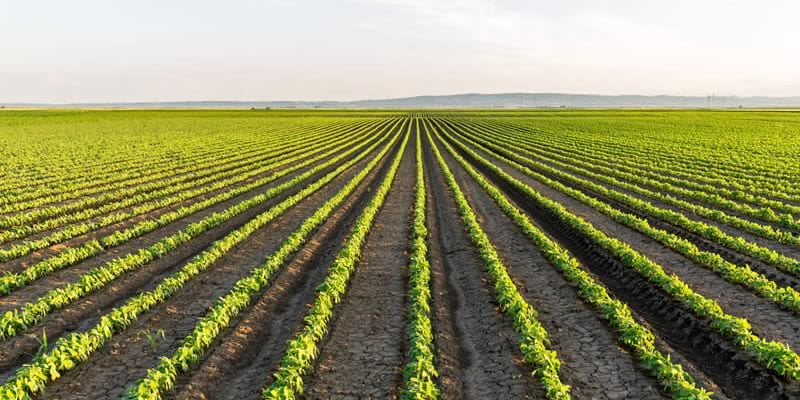
Soil & Health
Over the next year, you will have over 1,000 meals – each one a chance to change the health of yourself and the planet. Whatever they will be, they will depend on a not-so-secret ingredient: soil. Yet, we rarely talk about how the nutrient quality of food varies significantly depending on the soil it was produced in. What would it look like if we valued the connection between the health of our soil and our own health, and worried more about the nutrients in our food rather than the calories?
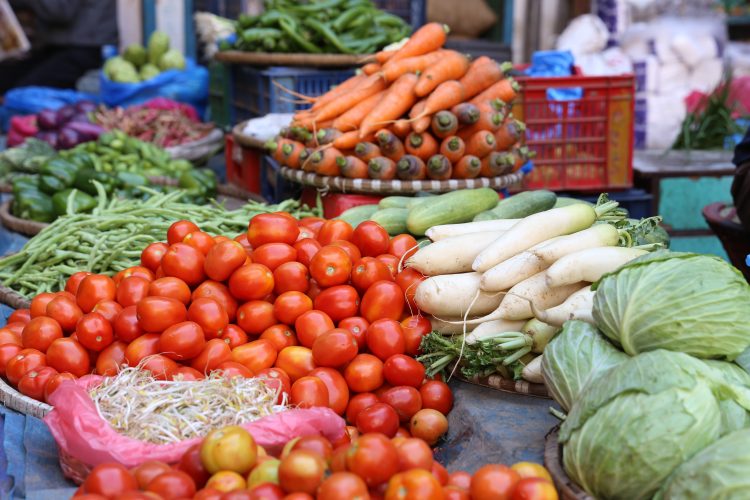
Did You Know?
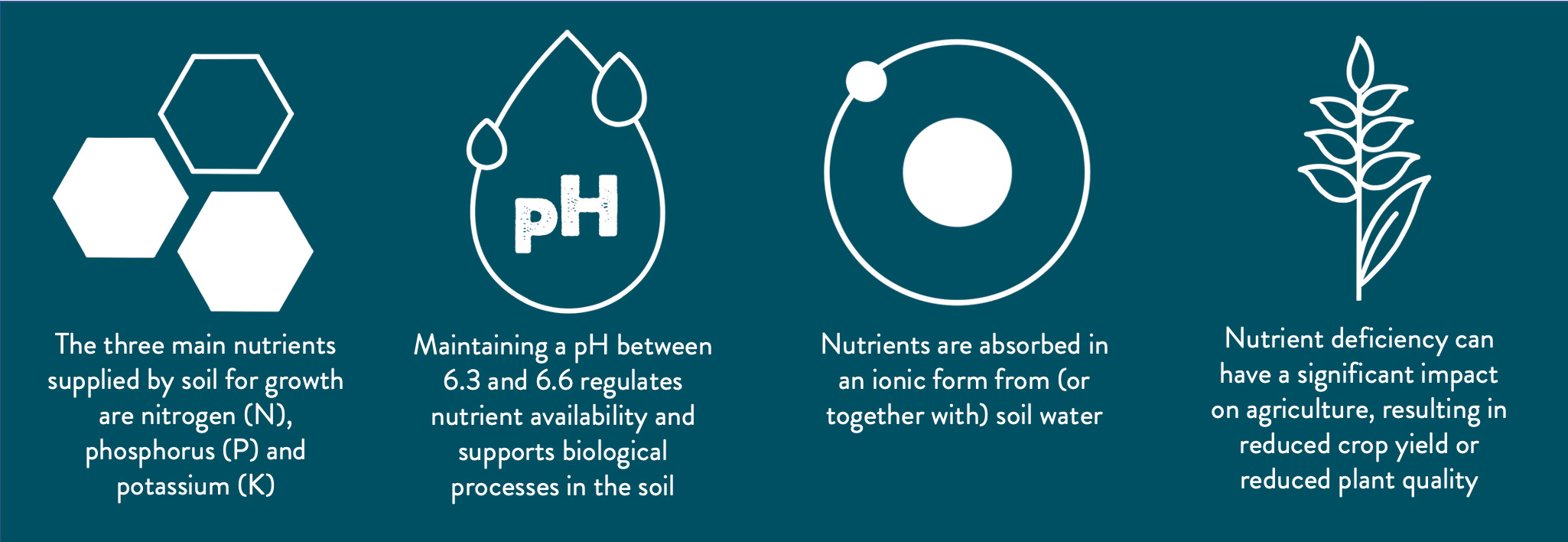
Compost & Manure
The natural order of things is that when we eat food, we take nutrients from the food which the plant has taken from the soil. It goes without saying therefore that the soil we eat our food from should be as nutrient rich as possible. Composting is the process of turning plant and animal matter in to a rich, highly nutritious material. By adding this material to our soil, we make our soil more fertile. When food grows in the veg patch, it takes nutrients from the soil (this means that over time the soil becomes depleted of vital nutrients); the plants then travel the short distance to the compost corner, where, aided by an army of organisms, they rot down and release their nutrients. This composted material is then ferried back to the veg patch to nurture the next season’s crops. It’s the ultimate closed-loop virtuous system and our health, and the health of our families, relies on it functioning properly. The most important nutrients that your vegetables require to grow are nitrogen (N), phosphorus (P) and potassium (K). The goal of any fertiliser (organic or artificial) is to make plants grow by supplying these elements in readily available forms. In general the nutrients in fertilisers are important to plants for the following:
- N: Nitrogen, for producing leaf growth.
- P: Phosphorus, to produce fruit and a strong root system.
- K: Potassium (potash), for strength, flower colour and size.
Compost, farmyard manure and seaweed are basically, natural fertilisers. They supply these essential nutrients but also lots of other micro-nutrients. At the same time, they improve soil composition (in a way that chemical fertilisers do not). Its possible to magically (but gradually) turn a heavy clay soil in to a lovely friable light soil over a number of years by adding compost or manure each winter.
Home-made garden or kitchen compost is rich in NPK so you should try to produce as much of this as you can. Farmyard manure from pigs, sheep, horses, cows or poultry is great, but a little harder to acquire – and must be well-rotted before applying (which generally takes 8-12 months). Seaweed is also amazing, but generally only available to those living by the sea. Home-made liquid fertilizers provide a boost to vegetables during the growing season – these could be: comfrey, which is potash rich; nettle which is rich in nitrogen and potash; and animal manure which has all three nutrients. It would be nice of course to be completely self-sufficient in compost – to ‘close the gate’ on your garden’s nutrient needs, so to speak, but this mightn’t be practical for most people. It’s an option to source some well-rotted farmyard manure from a local farmer to supplement the compost.
Application Tip: Add a layer of compost about 5cm thick to all vegetable beds each winter, except the bed which will take root crops the following year (carrots, parsnips etc.). It is generally accepted that adding compost to the root bed can cause ‘forking’ in carrots and parsnips.
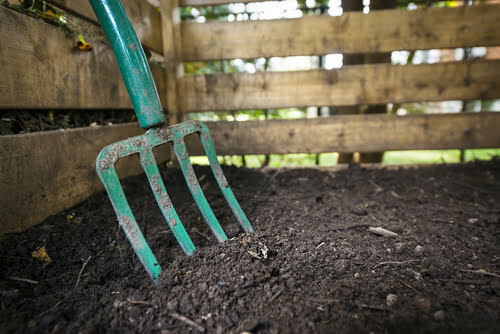
Practical Steps you can take
Luckily, there are things we can do in our homes to protect our soils. Here are four actions that will make a difference:
- Use organic, pesticide-free products. This will reduce the detrimental impact chemical fertilisers have on our soil and the damage pesticides do to bees and other pollinators.
- Use peat-free compost to protect our precious carbon-storing peat bogs. The more people buying peat-free compost will send a strong signal to the market that we want peat to stay in our bogs, where they provide a specific habitat for many unique species, including sphagnum moss and the carnivorous sundew plant.
- Make your own compost from food and garden waste using a home composting system, and use it to fertilise your soil to help keep your soil healthy.
- Love Soil! When was the last time you held some soil in your hands? It might be something you did quite a lot as a kid, but maybe not so much as an adult. As a GIYer, not many days go by when we don’t feet soil in our hands, be it digging a hole to transplant a seedling or mixing soil and compost together for sowing trays of seeds.
- Buy from farmers and food producers who care about the soil as much as you do. Encouraging soil health and biodiversity – whether on large-scale agricultural land or in our own gardens – will ultimately improve our food systems and the quality of the food we eat.




